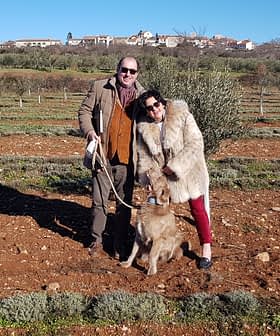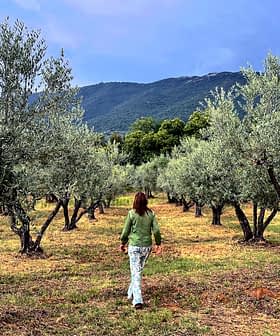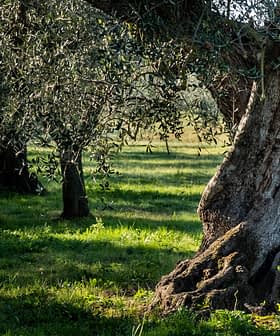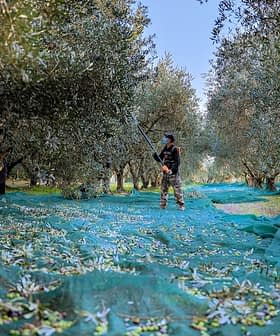Some of the Best Olive Oils are Made in Croatia
This Mediterranean country bordering the Adriatic Sea has been growing olives for centuries but has only recently been gaining recognition as a small but significant producer of high-quality extra virgin olive oil.
 Branko Jud with his nephew
Branko Jud with his nephewCroatia is rarely included on the list of olive oil-producing countries, most likely because it is still a relatively small producer compared to its European counterparts. This Mediterranean country bordering the Adriatic Sea has been growing olives for centuries but has only recently been gaining recognition as a small but significant producer of high-quality extra virgin olive oil.
At the 2016 edition of the New York International Olive Oil Competition (NYIOOC), nine extra virgin olive oils from Croatia won Gold and Silver Awards. Six out of the nine Croatian award winners are producers from the peninsular region of Istria, while the others hail from the Adriatic islands of Krk and Brač, and the Pelješac peninsula in southern Dalmatia.
Croatia is going to be the next big thing. I’m happy our family is part of this historical movement.
To keep up with increasing international demand, commercial producers in larger olive oil producing countries have moved to mechanical harvesting methods, and many mix oils procured from other countries and label their oil as being home-made. In contrast, the majority of Croatian olive oil producers are small family businesses growing their own olives and producing limited quantities of extra virgin olive oil. Most hand-pick their olives, pressing them the same day to ensure high quality, and some follow organic production methods. These small family producers cannot compete on the European and international markets in terms of quantity, but they certainly can make EVOOs of outstanding quality.
Croatian olive oil is entirely produced locally with all stages of production taking place in the region where the olives are grown; from planting, picking, pressing, and processing, to bottling and packaging. Extra virgin olive oil from the Croatian island of Cres already enjoys Protected Designation of Origin (PDO) status at the EU level since 2015, while applications are pending for other olive oils from the regions of Istria and the islands of Krk, Korčula and Šolta, and they are expected to be approved later this year.
Among the winners at NYIOOC 2016 is Plominka, a rare monovarietal olive oil by Utla, produced on the island of Krk in the North Adriatic Sea.
Plominka is an indigenous olive variety dating back to Roman times. Branko Jud, the producer of Plominka by Utla, told Olive Oil Times that this unique olive oil has already won many national awards, but this is the first time it has been given an international stamp of approval.
“Each award makes us very proud and is a confirmation we are doing good work,” Jud said. “The NYIOOC was our first international competition and this award means a lot to us since our olive oil is a monovarietal olive oil from a variety called Plominka which grows only in a small geographical region: on the islands of Krk and Cres, and a small part of Istria. Not only is this variety unique, it is also rare.”
“As far as we know, this is the first time a monovarietal olive oil of the variety Plominka has participated in an international competition. The award is a confirmation of its quality and proof that it can stand alongside other varieties which have proven their quality.”
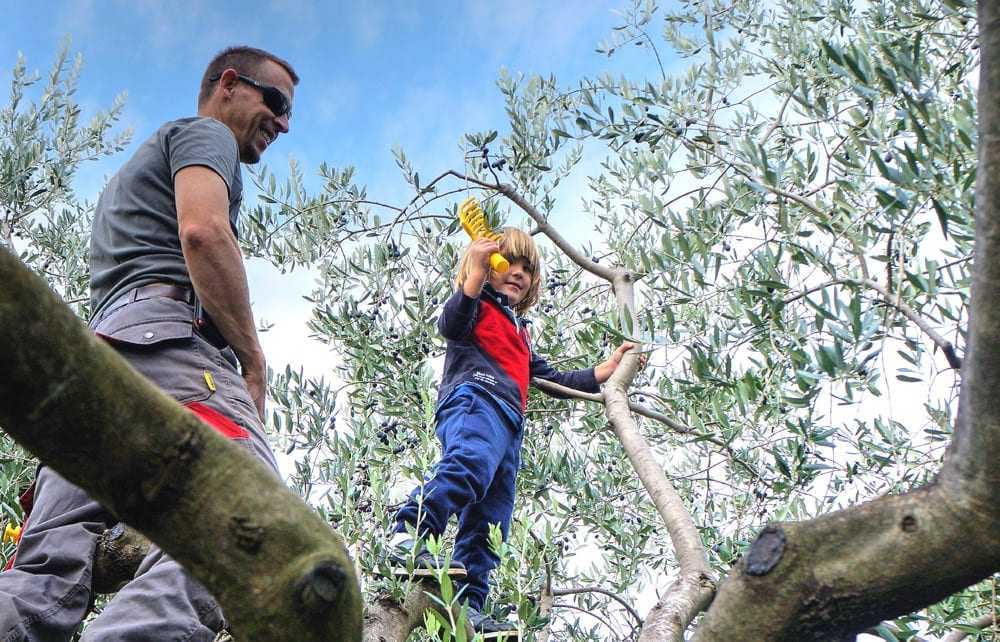
Branko Jud with his nephew
What is it that makes this variety unique? Plominka has an interesting history and is an example of how terroir shapes an oil’s unique character. “It was once an important part of Oleum Liburnicum, an olive oil highly appreciated by the Romans,” Jud further explained. “What makes it unique are the Mediterranean herbs growing among the olive trees. On the island of Krk there are no big plantations, and our olives live in harmony with the grass and herbs which traditionally grow in the region.”
For Jud, olive oil is part of a family tradition that has been continuing for several generations. “We are a family-run olive oil production operation, and we are now in the fourth generation. The first grove was bought in the early 1900s while the second grove, where most of our trees are, was planted in the early 1950s. We are still planting new olive trees so our groves are always changing and growing.”
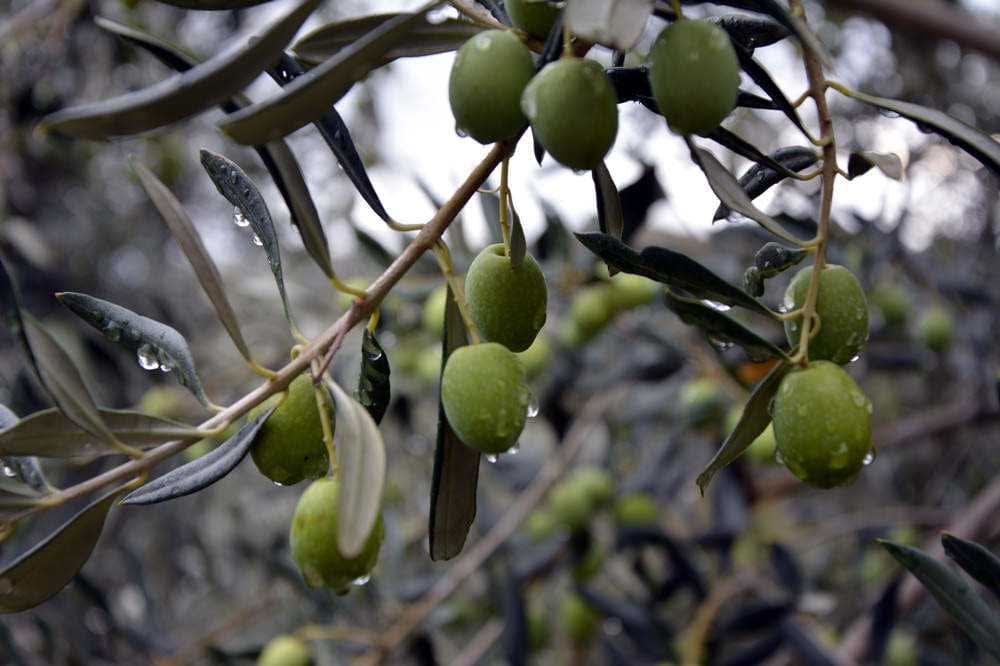
The Plominka olive
Nestled in the rolling hills of central Istria, is Zlatni Brig (Golden Hill), located 500 metres above sea level. The fertile soil of this hill is home to another NYIOOC Gold winner: Grimalda by Uljara Zlatni Brig (Golden Hill Oil Mill), also known by its French appellation, Moulin de la Colline Dorée. It is here that olive producer and mill owner Milan Matković planted 3,500 olive trees of the varieties Pendolino, Leccino, Bianchera, and the indigenous Buža in 2009 after returning to his native soil from France. Matković’s olives are organically grown, picked by hand, and processed in his on-site oil mill.
“Our oil is certified 100% organic — we don’t use chemical products,” Matković told Olive Oil Times. “We use compost and organic cow manure. We also have organic certification for our oil mill. In order to press organic olive oil, we have to follow a special procedure because organic olives have to be pressed separately and can’t be mixed with others. So we have to clean the entire machinery, including all the pipes. This is a process that takes five hours. And then we press the organic olives very early in the morning.”
Having already won many awards in Croatia and France, this was the first time Grimalda was being judged at the NYIOOC. “We’re very happy to win a gold medal in New York,” affirmd Matković. “Our oil is exceptional, but I’m not sure why… maybe it’s the soil? Also, I pick my olives later than my neighbors. They pick theirs in October but this past year I waited until November. Of course, it depends on the region too, and we’re at an elevation here on Zlatni Brig. But I’m very happy with the result. An award like the one we won in New York is not to prove that our oil is the best — it’s recognition of an exceptional product. The prize is also important to us because it brings recognition not only to our oil but also to Istria as a whole, and puts it on the map as an olive oil region. Until now Istrian olive oils were not known.”
Just a few kilometers south of Zlatni Brig, covering an area of 2.4 hectares, lie the olive groves of Terra Rossa, another Istrian olive oil producer who won Gold and Silver Awards at NYIOOC in 2015 and 2016 respectively. Family-owned and run, three generations of the Bellani family produce 100% organic olive oil from several olive varieties including Leccino, Frantoio, Pendolino, Istarska Buža, and Istarska Bjelica.
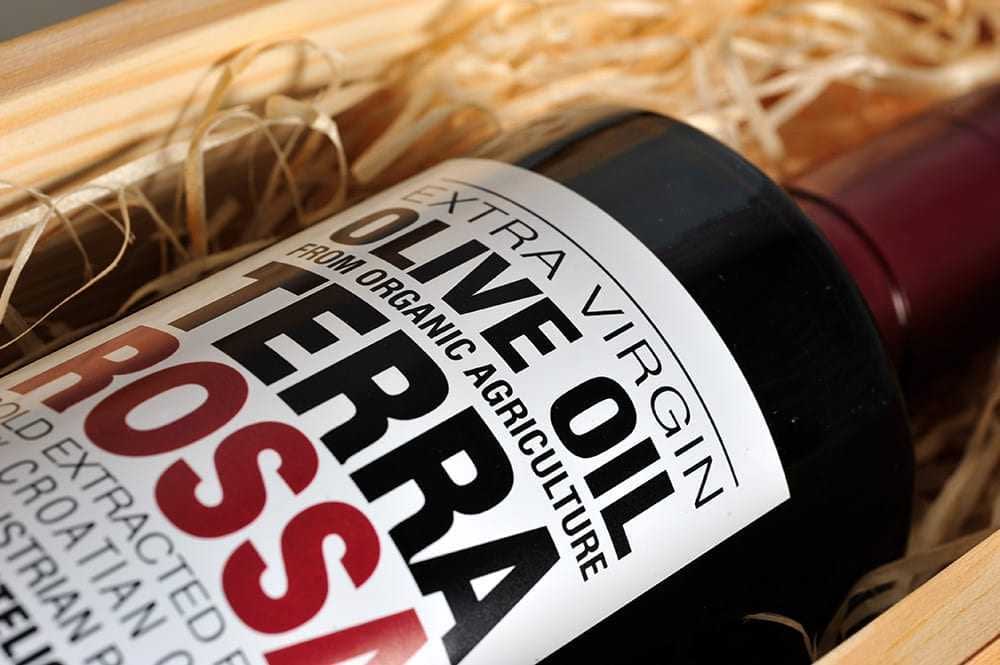
Based in Zürich, Daniel Bellani continues his father Stelio’s and grandfather Francesco’s family business and passion for olive oil, and is a certified olive oil sensory expert and a member of the Swiss Olive Oil Panel. “My great-grandfather had started cultivating olives, while my grandfather planted vineyards during the time of Yugoslavia,” explains Bellani. “It was my father who revived the tradition of olive growing about 20 years ago. Since then we have grown steadily, but have been committed from the beginning to organic cultivation. Today, three generations of our family work together, including my 94-year-old grandfather, who’s the oldest olive oil producer in Istria – and maybe in the whole of Croatia, and he still climbs trees to harvest the olives by hand.”
While small family-run and owned olive groves cannot compete commercially with large scale olive oil producers, international competitions put them on an even playing field when it comes to judging the quality of their products. Bellani shares why NYIOOC is so important for small producers and the benefits they can bring: “We won our first award at NYIOOC last year — a Gold Award and with that, recognition as one of the world’s best olive oils in 2015. This is an acclaimed award, and NYIOOC is a global benchmark for high-quality olive oil, so this gives us very strong support and potential new customers. Given that we are a small family business with a limited annual production, this has given us direct contact with high-class restaurants and star chefs who appreciate the quality of our olive oil and use it for their products. Because of this, we have customers from Sweden to South Korea.”
Further south along Croatia’s Adriatic coast in the region of southern Dalmatia is the Pelješac peninsula and its centuries-old olive groves. This is where the Miloš family has lived and produced olive oil from the native Oblica and Pastrica varieties for almost five hundred years. Their extra virgin olive oil won Gold Awards at NYIOOC for two consecutive years, in 2013 and 2014, and picked up a Silver at this year’s edition.
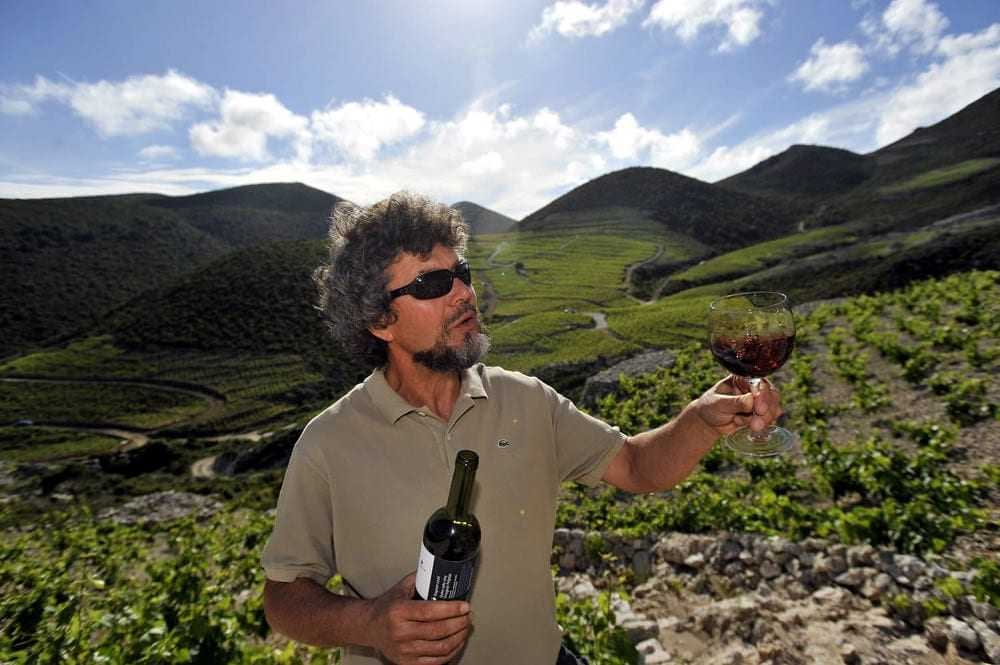
Ivan Miloš
Ivan Miloš is pleased that recognition for their olive oil has been consistent. “For us it’s important to be constant, and this year’s award shows we are on the right path,” he told Olive Oil Times. “We, both as wine producers and olive oil producers, don’t chase awards, we are just trying to do our best.” For the Miloš family, quality is of utmost importance, and only the best of each year’s harvest goes into making their olive oil. “We use just the best parts and only perfectly healthy olives,” he explained. “There are no compromises: if we are not happy with the quality of the olives, we don’t use them in our selection. Sometimes only a percentage of the potential yield can be used for our oil brand and we leave everything else to our partners. We wanted to make something which will best represent our region.”
For Miloš, the numerous awards that high-quality Croatian olive oils have picked up in recent years at NYIOOC have helped put Croatia on the olive oil map and make its mark as one of Europe’s premier olive oil-producing countries: “If you have the best product in the world and nobody knows about it, you can’t go forward, so getting an award at NYIOOC helps us to reach an audience and showcase the magnificent things we do here in Croatia. This is an old European country with a long tradition of olive oil production and with lots of indigenous varieties. Same thing with Croatian wines and food. So people from all over the world are slowly discovering our story and Croatia is going to be the next big thing. I’m happy our family is part of this historical movement.”




